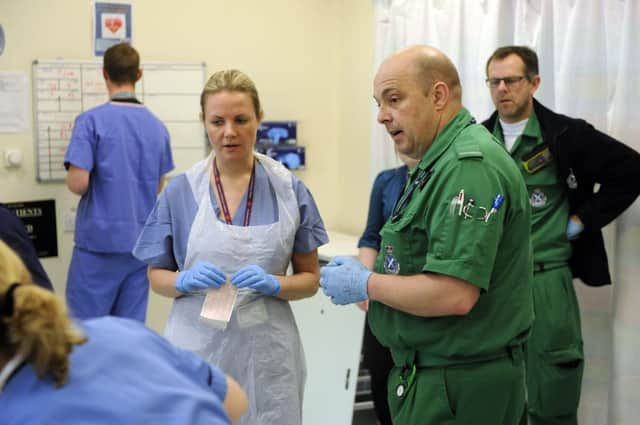Shingles can increase stroke risk by 74% - study


A study of more than 300,000 people across the UK found that the infection – caused by the same virus as chickenpox – appeared to increase the risk of future serious health problems among sufferers aged 18 to 40.
The researchers behind the study, published in the journal Neurology, said younger people who had suffered shingles should be screened for other factors which might increase their risk of stroke.
Advertisement
Hide AdAdvertisement
Hide AdAfter someone recovers from chickenpox – usually picked up in childhood – the virus stays in their body, remaining dormant in the nerve roots. But in some people, the virus can reactivate years later, causing a painful and blistering rash.
Shingles can last for up to four weeks, but often have complications such as long-lasting pain. It can also cause hearing loss, and nerve or brain damage, and if it affects the eye can lead to blurred vision and blindness if left without treatment.
Last year, a new shingles vaccination programme was launched in the UK, offering the jab to people who turn 70.
In Scotland around 7,000 people aged 70 years and over get shingles every year. But it can also affect much younger people whose immune system has been weakened by stress or certain medical treatments.
The latest study, by researchers at University College London, looked at 106,600 people who had shingles and 213,200 people of similar ages who did not have the condition.
They found that people under 40 were 74 per cent more likely to have a stroke if they had had shingles, after taking into account risk factors such as obesity, smoking and high cholesterol. A total of 40 people with shingles suffered a stroke – 0.21 per cent – compared to 45 of those who had not had shingles, or 0.12 per cent.
People under 40 were also 2.4 times more likely to have a transient ischemic attack (TIA) – or “mini-stroke” – if they had shingles and 50 per cent more likely to have a heart attack.
The numbers were smaller in people over 40. This group was 15 per cent more likely to have a TIA and 10 per cent more likely to have a heart attack if they had shingles. They did not have a greater risk of stroke.
Advertisement
Hide AdAdvertisement
Hide AdStudy author Professor Judith Breuer said, that for older people, better screening and treatment for stroke risk factors, including diabetes, high cholesterol and high blood pressure, may explain why they are at lower risk than younger subjects of stroke, TIA and heart problems following shingles. “Anyone with shingles, and especially younger people, should be screened for stroke risk factors,” Dr Breuer said. “The shingles vaccine has been shown to reduce the number of cases of shingles by about 50 per cent.
“Studies are needed to determine whether vaccination can also reduce the incidence of stroke and heart attack. However, what is also clear is that factors that increase the risk of stroke also increase the risk of shingles, so we do not know if vaccinating people can reduce the risk of stroke per se.”
Prof Breuer added: “The role for vaccination in younger individuals with vascular risk factors needs to be determined.”